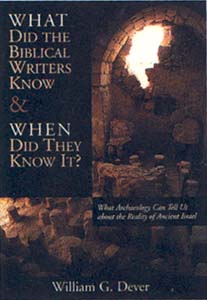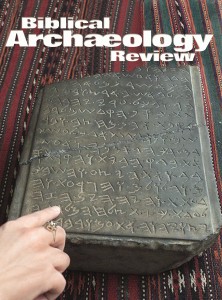
The contest for ancient Israel grows fast and furious. The battle between the “maximalists” and the “minimalists” is about nothing less than the historicity of the Bible. The minimalists—centered mainly in Sheffield, England, and Copenhagen, Denmark—deny, in a nutshell, that the Old Testament is a historical document and claim that it is basically a work of theological fiction, composed not in the Iron Age (12th-6th centuries B.C.E.) but in the Persian or Hellenistic period (fourth-third centuries B.C.E.). It contains, they argue, little or no reliable information about the period it ostensibly describes.
The minimalists may have scored a knockdown with the publication of Israel Finkelstein and Neil Asher Silberman’s The Bible Unearthed (reviewed in BAR 27:02). But now a heavyweight from the other camp has stepped into the ring: William G. Dever—doyen of Syro-Palestinian archaeology, battle-hardened veteran of many intellectual campaigns and Biblical archaeology’s ablest spokesman and defender.
Already a library member? Log in here.
Institution user? Log in with your IP address.

